Rainer Maria Rilke 1875 (Prague) – 1926 (Montreux) Life. His vision, from the constantly passing bars, X. has grown so weary that it cannot hold X. anything else. It seems to him there are X. a thousand bars; and behind the bars, no world. As he paces in cramped circles, over and over, A. the movement of his powerful soft strides X.. “The Panther” (subtitled: “In Jardin des Plantes, Paris”; German: Der Panther: Im Jardin des Plantes, Paris) is a poem by Rainer Maria Rilke written between 1902 and 1903. It describes a captured panther behind bars, as it was exhibited in the Ménagerie of the Jardin des Plantes in Paris. It is one of Rilke’s most famous poems and has been translated into English many times, including by many.
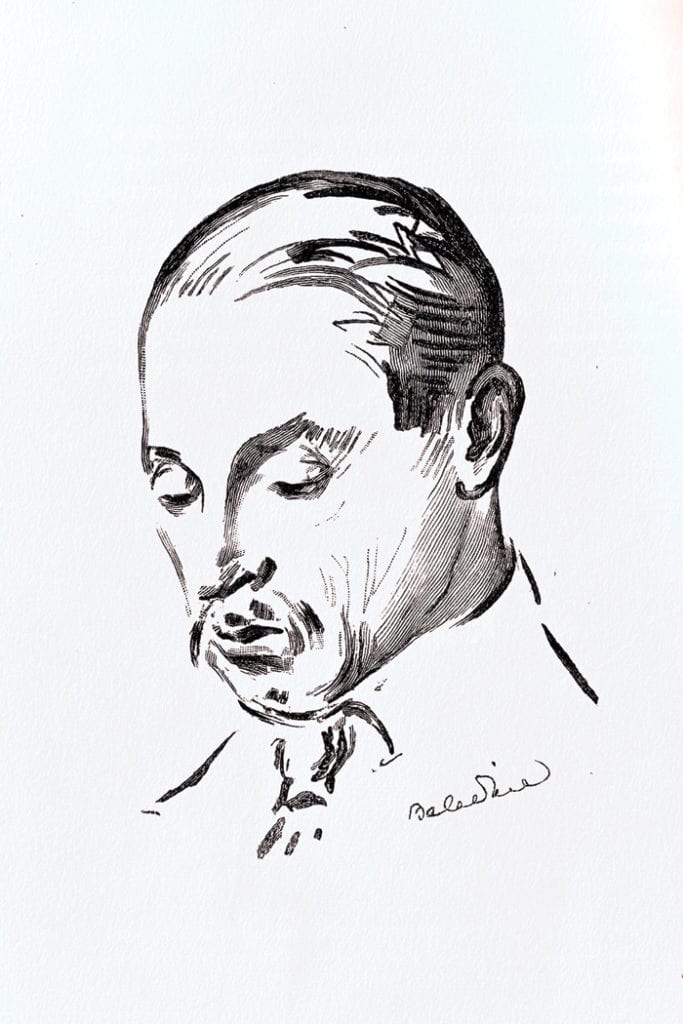
Rainer Maria Rilke Copper Canyon Press

der panther. rainer maria rilke. Wörter, Der panther und Gedichte
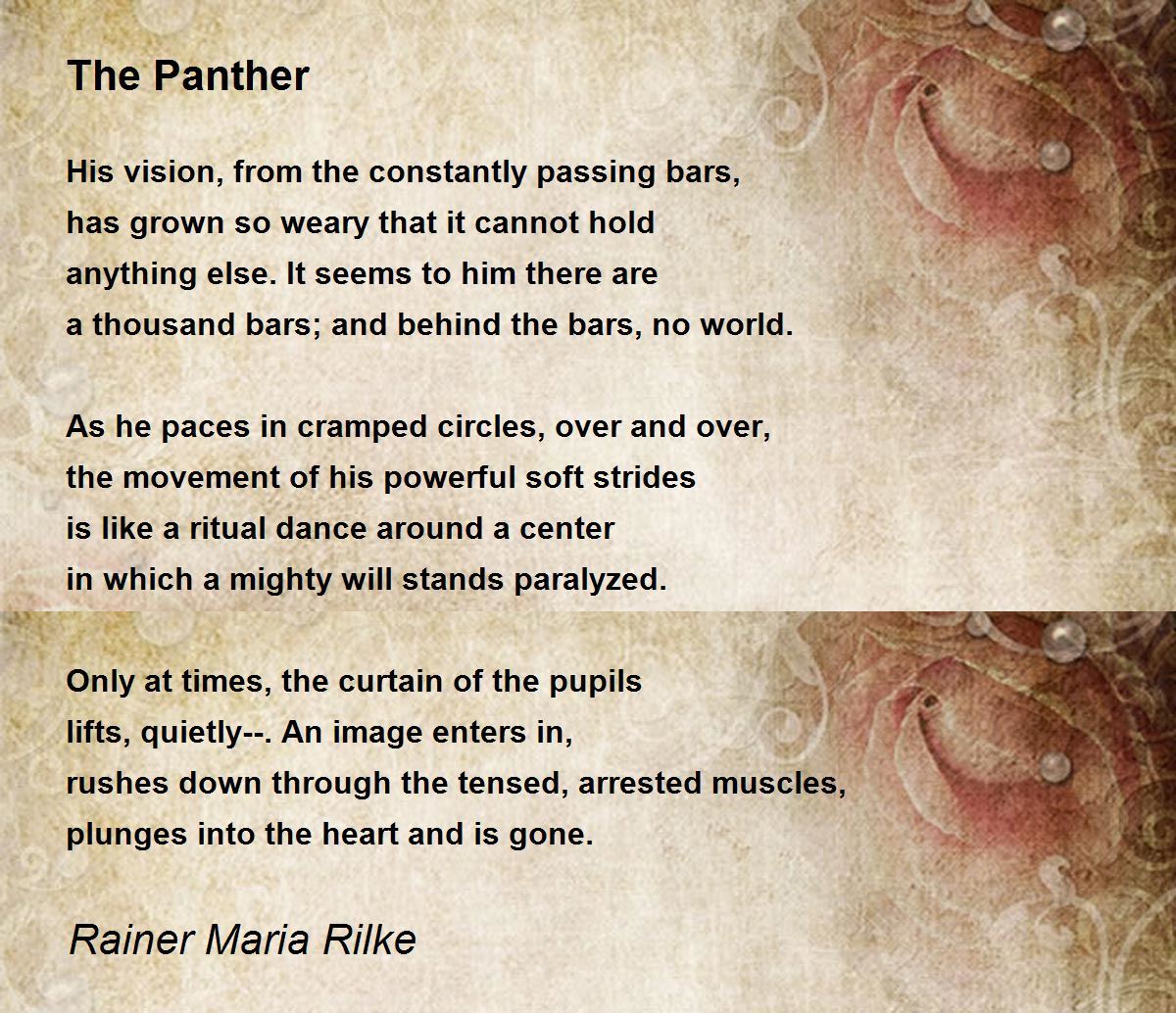
👍 Panther rainer maria rilke. The Panther Rainer Maria Rilke. 20190217
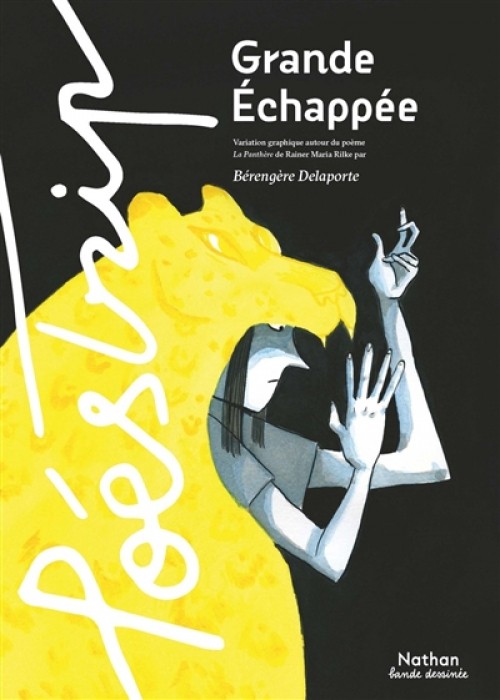
Grande échappée. Une variation graphique autour du poème La Panthère de Rainer Maria Rilke Les

Der Panther Rainer Maria Rilke YouTube

Der Panther (Rainer Maria Rilke) YouTube

Der Panther Rainer Maria Rilke YouTube

El Mirador Nocturno Rainer Maria Rilke

Inspiriert werden fur Der Panther Rilke
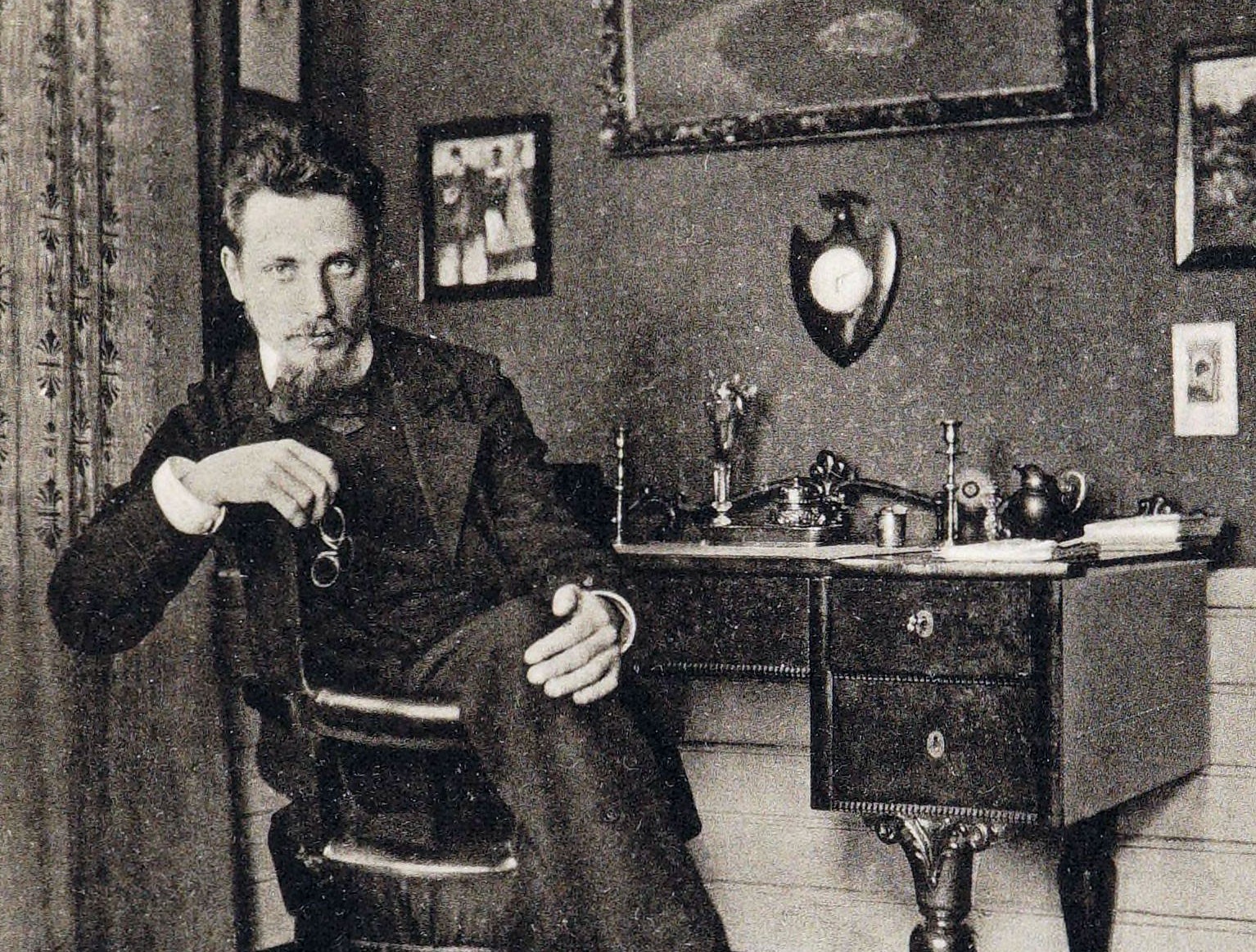
Rainer Maria Rilke Duino Elegies Gagosian Quarterly

Der Panther RAINER MARIA RILKE YouTube

The Panther Rainer Maria Rilke poem reading Jordan Harling Reads YouTube
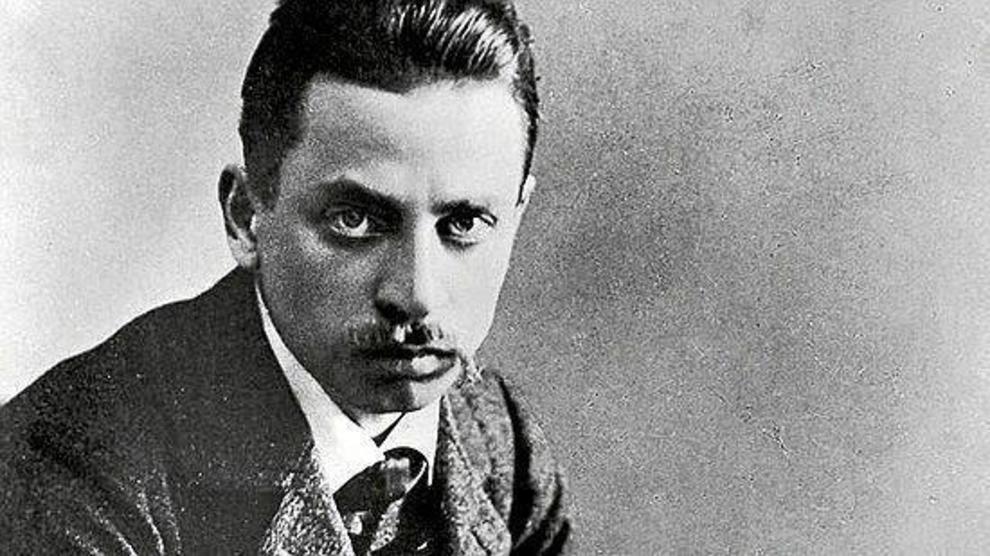
Rilke rebelde, poeta y trashumante Cultura EL MUNDO

“DER PANTHER” (von Rainer Maria Rilke, 1902/03, Paris) YouTube

Der Panther Rainer Maria Rilke (MP3 Hörbuch) HÖBU.de

Images de la culture Rainer Maria Rilke (18751926) catalogue général
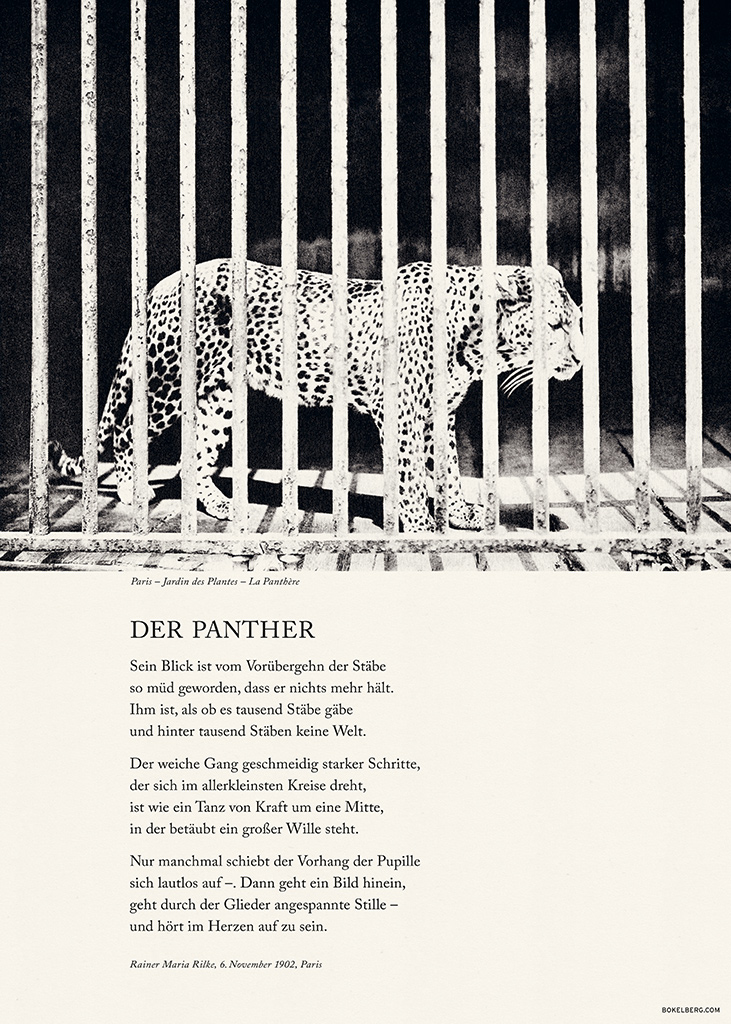
Der Panther, Rainer Maria Rilke PoesiePlakate Plakate
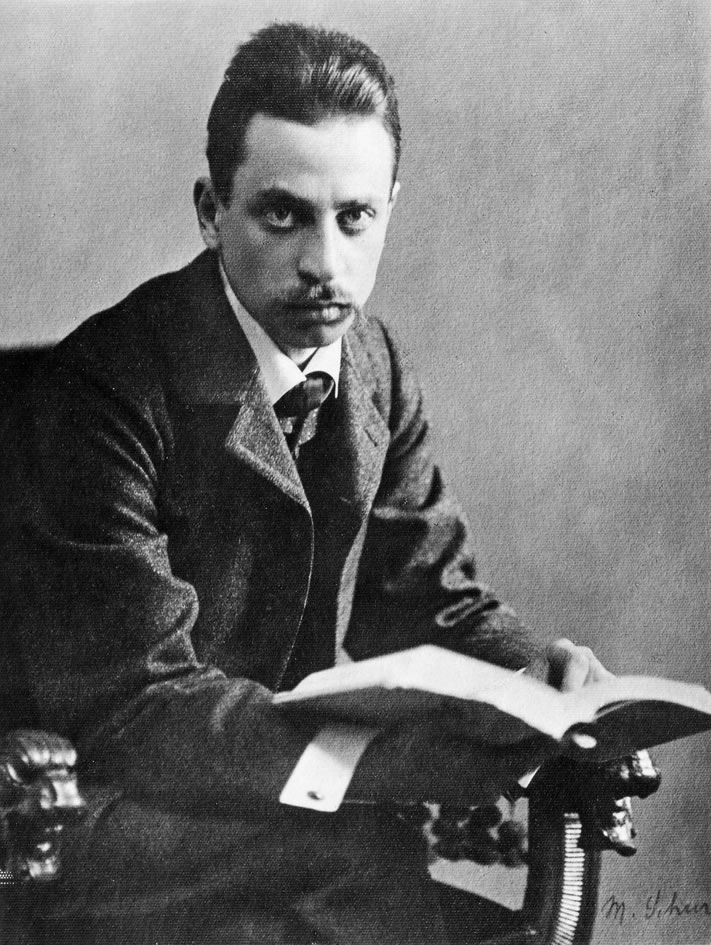
Rainer Maria Rilke Fondation Rilke

The Panther Rainer Maria Rilke Rainer maria rilke, Panther, Maria
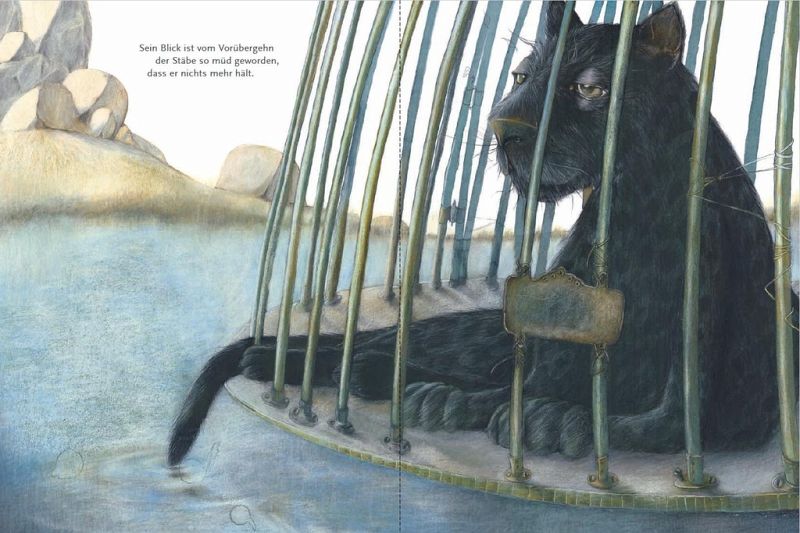
Der Panther von Rainer Maria Rilke portofrei bei bücher.de bestellen
Rainer Maria Rilke 1875 (Prague) – 1926 (Montreux) Life. His vision, from the constantly passing bars, has grown so weary that it cannot hold. anything else. It seems to him there are. a thousand bars; and behind the bars, no world. As he paces in cramped circles, over and over, the movement of his powerful soft strides.. In the autumn of 1902, Rainer Maria Rilke began working as secretary to the French sculptor Auguste Rodin. Rilke was commissioned to write a monograph on the Worpswede artists and originally moved to Paris in order to watch Rodin at work. He would observe the artist working and despite only possessing minimal knowledge of the French language, would be talk to him for hours; he was astounded by.